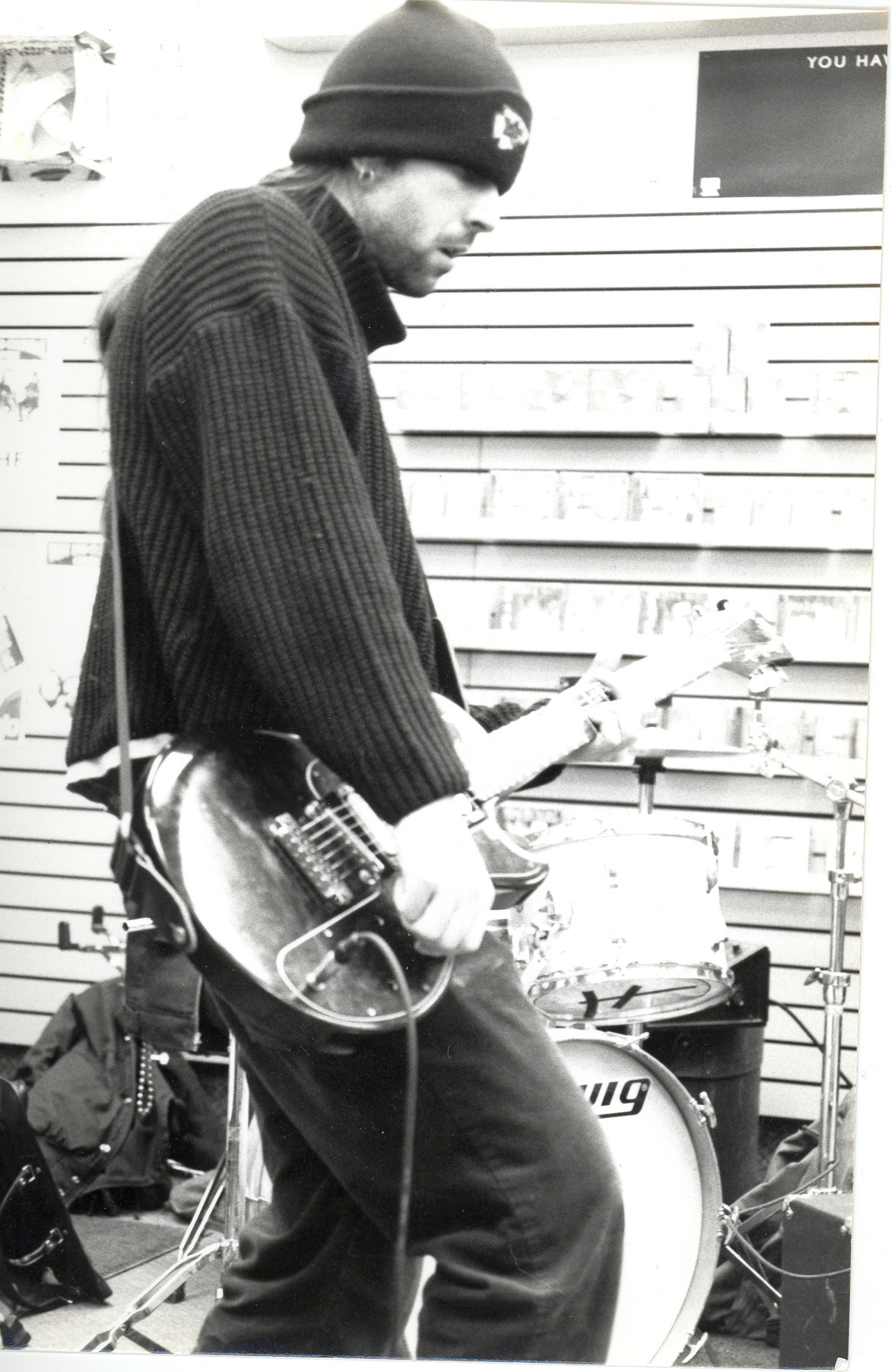“Flangability… Fuzz overtone, sunny lake music…” A lazy, meandering voice mumbles in the opening seconds introducing “Coffee Song,” the first track on Transistor Sound & Lighting Co.’s 1998 eponymous first (and last) full-length album. The song sounds exactly as the narrator describes: razor-sharp summertime fuzz-pop, banged out with unbridled enthusiasm. The rest of the album follows suit, with a couple slower, dreamier tracks allowing a welcome chance to catch your breath. It has all the makings of a late-90s underground cult hit record, but after a modest amount of spotlight, with some dates opening for Treble Charger and By Divine Right, and a video for “Anyways/Mayonnaise” getting some pretty heavy rotation on Much Music, TS&LC just kind of disappeared.
After first getting tipped off there was this amazing, now near-unknown album from our city, Winnipeg, the search commenced. Months of checking the inventory computers waiting for a used copy to pop up finally paid off, and I bought Transistor Sound & Lighting Co. from Jason Churko at Winnipeg’s best record shop, Music Trader. Churko was TS&LC’s lead singer and guitarist, who also runs the store. On first listen, the immediate reaction was ecstatic relief: the album was all my friends had made it out to be, full of nods to the best of 90s college rock like Guided By Voices and Pavement, with a defiant spirit of weirdness and excitement pulsing through it. The second reaction was pure confusion: why stop after this? It didn’t sound like anything else happening in the country at its time, a perfect mix of lo-fi aesthetics with skewed bubblegum pop melodies.
Videos by VICE
ViK Recordings, a Sony BMG subsidiary, released TS&LC, and then subsequently dropped the band in favour of artists like Shawn Desman and McMaster & James. It might have just been bad timing, with the end of the decade seeing weirdo-pop like Neutral Milk Hotel (whose classic In The Aeroplane Over The Sea was also released in 1998) making its way out and a new era of fashionable garage rock on the rise with The Strokes at the helm. By 1999, Pavement had thrown in the towel, too. It was harder and harder to find slacker guitar music, unless you lived in a place that was hell-bent on not giving up the whole thing and moving on.

It’s hard to nail down just one killer symptom in cases like this, though, and Churko echoes that sentiment. “We really just burned out operating on our label’s schedule. The mechanics of releasing our record were painfully slow and ultimately, there were just too many cooks in the kitchen.”
The band toured and played shows for close to two years between when they signed on with ViK and when the record came out. Before they met with the label, the album was already almost completely finished. The whole thing, including the post-release touring, ended up sucking the fun out of making music, and with their other principle songwriter Dino D’Ottavio about to become a father, they decided it was the end of the line for TS&LC.
But, as with most art, it’s not necessarily important how or why those who created it ended things. What’s important is the fact it exists. Now, almost 20 years later, it still proves its worth, with the glittering, “whisper-to-a-scream” six-string sonics of “Sasparilla,” through the hazy, gentle swirl of “Three Chords,” to the sparse, acoustic melancholy of album ender “Fake Away,” where Churko wails, “If I could fake away from you / I wouldn’t need to so pretend / there’s a forest in my mouth / and it’s growing through my head.” Its most lasting legacy, though, is the everlasting influence it made on Winnipeg music, where you can hear the album’s aural footprint on bands like spiritual successors Boats! (who have even had Churko contribute guitar to their tunes) and Cannon Bros.

Churko has been very active but a bit hard to pin down since the group broke up, playing in, with, or on the albums of bands like Nathan, The Paperbacks, and his own post-Transistor project, Chords of Canada. D’Ottavio has done some recording for other bands as well as a short stint with his own project called The Kill Bros. And Marty Kinack is well-known in Canadian music circles as Broken Social Scene’s longtime sound engineer, and has produced and played on their records, as well as releases by Sarah Harmer, Hayden, and Stars.
Near the end of the album on “Jaded and Elated,” Churko sings, “I thought that rock guitar could save my generation.” While it’s unlikely any guitar could pull off such a heroic feat, his at least managed to preserve and influence a handful of musicians to believe that it could, and keep their amps turned up loud enough to create some converts.
Matt Williams puts a lot of faith in rock guitar, too. @MattGeeWilliams.
More
From VICE
-

Screenshot: Nightdive Studios -

Maren Caruso/Getty Images -

Malte Mueller/Getty Images -

OsakaWayne Studios/Getty Images
